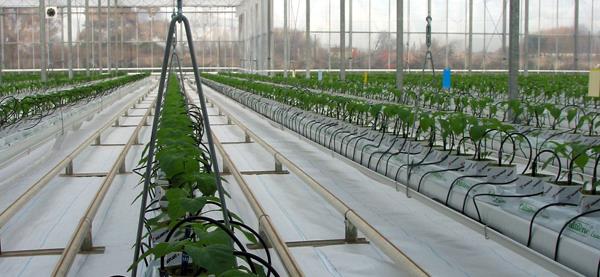A Defra consultation ‘Changes to water abstraction licensing exemptions’, was published on 15 January. The deadline for responses is 8 April.
It explains government plans to bring a range of currently exempt activities into the licensing system. The most important of these ‘New Authorisations’ relate to the estimated 1,000 horticultural businesses that use trickle or drip irrigation.
The NFU group learned that the main elements of the Defra proposals are:
- A light touch and risk based approach to issuing ‘New Authorisations’
- 20 m3 per day derogation remains for all users
- Licences to be issued to the overwhelming majority of trickle operators
- But where abstractions cause ‘serious damage’ there will be no licence issued with no compensation payable
- From the time of legislation coming into force, growers will have two years to apply and the Environment Agency will then have three years to determine the application, so New Authorisations should be fully integrated into the current system by 2021
- Any compensation payable to rejected applications (other than in cases of serious damage) to be paid from the existing EIUC fund
- Trickle licences to be subject to Hands off Flow constraints to protect low surface water flows
David Long, Kent soft and top fruit grower and a member of the NFU Horticulture Board described the sector as a major success story for British horticulture which has delivered increased availability of high quality produce over a longer growing season.
He said that to continue to flourish, growers need secure access to water to grow fruit, and labour to harvest it.
“The government’s National Living Wage proposals constitute a huge challenge for growers in respect of harvesting, and so these Defra proposals to constrain water use come at a difficult time for us”, said David.
Trickle irrigation is a highly efficient method of water application to crops, and there is ample evidence to show how recent technological advantages have been actively employed by growers to drive down the volume of water used per tonne of crop. Efficient application techniques help to mitigate and minimise the environmental impacts of abstraction.
Paul Hammett, NFU water resources specialist, said that growers at the Defra meeting were promised a ‘light touch and risk based approach’ to the future licensing of trickle irrigation.
Arguably the most contentious of the Defra proposals is that the Environment Agency will have powers to apply environmental constraints to protect the environment by applying abstraction restrictions at low flows or during drought conditions.
Growers at the Defra meeting stressed that trickle irrigated crops cannot withstand periods without access to water.
Marion Regan who represents the soft fruit sector at AHDB Horticulture pointed to the recent shift to the use of coir-type substrates which have little or no water holding capacity.
“Modern growing methods mean that water shortages cannot be tolerated, even over short periods of time. Restrictions in water availability would have a major impact on crop growth and business profitability and so provision must be made to accommodate protected crop production in the new licensing regime”, she said.
